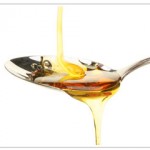Hi & Welcome back!!
For years Insulin has been painted as the bad guy hormone – you know the one that takes blood sugar and then shunts it off to be stored as fat.
Thing is, this is only partially correct. The real issue for most of us in the Western world insulin resistance coupled with too many processed high GI carbs. In fact becoming more insulin senstive will help us lose fat, build muscle and have a more efficient metabolism.
Traditional Nutritionists & Dieticians, despite the mountains of research to the contrary, all seem to believe that fat loss is as simple as subtracting X calories from your daily intake and Hey ! Presto! Instant 6 pack abs! Be nice if it was true and would fat loss a whole lot easier and Gyms & weight loss centres would rapidly be rolling out lean, athletic women & men.
Just imagine the world we would be living in if all it took was the application of some simple arithmitic applied to a total calorie count. <sigh> never going to happen.
Let’s not make any mistake here though – a pound of fat is still 3500 calories and to lose fat you still have to achieve some form of calorie deficit in order to do so. In fact no mater how hard you train you can’t outperform a bad diet – or one that overloads you with calories that you just don’t need.
But this is only a part of the overall strategy that we need to use to achieve our desired outcome – a leaner body that LBN and has a revved up metabolism.
Part of this strategy is understanding the metabolic and hormonal effects of food and then using these effects in a tactical plan to achieve our goals.
Insulin Sensitivity
The single most important hormone when it comes to body recomposition is – Insulin. Yep the ‘bad guy’. Y’see Insulin is the most anabolic(repair & growth) and anti-catabolic (tear down) hormone that we have.
Insulin improves amino acid uptake by muscle tissues initiating protein synthesis promoting growth & repair. It also acts to prevent amino acids (the building blocks of our bodies) whether from food or our hard earned muscle from being used as a reserve fuel source when calories are cut below what our body has become to view as the ‘norm.’
Insulin also has a ‘dark side – under the right conditions, it is also the most lipolytic (fat storing) hormone in the body, shuttling fatty acids and glucose to fat cells for fat storage.
A logical approach to fat loss is one that moves you to a low-carb diet that is used to reduce calories and at the same time minimise insulin release so you avoid fat storage. This is right on the money if you are overweight, have a low activity level and are likely insulin resistant (or well on the way to being so). This covers the majority of the population these days.
It is also the way to go if you are over 40, a Type II diabetic or suffering from Syndrome X. I agree except that I am NOT an advocate of low carbs, but an advocate of low processed carbs for fat loss.
However no hormone is completely bad and the above approach is an incomplete one. If you work out hard on a regular basis, create a calorie deficit whilst eating nutrient dense foods – then moderate amounts of insulin is a positive thing. Why?
Because insulin helps your body to maintain muscle the leaner you get. So you can strip off fat and keep or build muscle. The key is the complete approach of training, diet and food types.
However if you are overweight, sick, obese, a sedentary worker on the slope to Type II then your diet should not be the same as for someone who is active, lean and nowhere near becoming a diabetic of any persuasion.
In utilising insulin’s positive side – one size does not fit all.
If your body is insulin sensitive then you can have a higher amount of carbs in your diet because you will get the anabolic effects of this hormone. Again my belief is that you should avoid as many processed carbs as possible, but if you have some and are Insulin sensitive the efects will less likely to go to fat storage.
If your body is insulin resistant, then higher carbs will mean that suffer more of its’ lipolytic (fat storing) effects. Simply – high GI & processed carbs should be a muich smaller part of your diet if you are insulin resistant.
So if you want to recompose your body you need to look at ways to increase your insulin sensitvity and reduce your insulin resistance. Becoming more Insulin ‘Sensitive’ as opposed to resistant should be a goal right up there with resistance training, metabloic conditioning and eating lots more protein.
So in addition to focussing on cuting out high GI processed carbs we need to looking at ways to improve our bodies ability to utise them & insulin more efficiently.
Some easy ways to improving your Insulin Sensitivity.
1. Avoid mixing ‘White’ Carbs with HFCS
All carbs aren’t be bad. All grain based carbs require at least some processing before humans can eat them. White carbs (flour, pasta rice – even the ‘healthy’ brown varieties) by themselves are not fat inducing. But combining these starches with sugars – especially fructose, and particularly HFCS – is downright evil.
Google High Fructose Corn Syrup and you’ll see that many researchers are now condemning the use of this sweetener as the major cause behind the obesity epidemic in the Western world. Americans partake of over 60 pounds a year…
Millions of our Asian brothers & sisters eat one of the purest starches out there aa a dietary staple – rice. By pure low carb thinking they should be the fattest folk on Earth. They’re not and in fact it is only when the traditional high starch / low sugar ratio becomes high starch / high sugar do we see obesity & diabetes rates rise in Asian populations.
Guess which form of sugar has the worst effect on ALL humans? Got it in one – fructose, particularly HFCS.
Fructose is metabolised & processed by our bodies differently from glucose. There are now a heap of studies that indicate that fructose, NOT glucose, is the main culprit in table sugar that causes insulin resistance.
In animal studies increased fructose intake produced insulin resistance, impaired glucose tolerance, high insulin levels, high triglycerides, increases in whole body inflammation and hypertension.
So to up your insulin sensitivity and to lower your insulin resistance – start by cutting out high fructose corn syrup, fructose sweeteners, sugar, sodas, processed fruit juices, fruit smoothies, and dried fruit. Then make sure that if you are having ‘white’ carbs ou are not mixing them with fructose – so watch cakes & cookie, pasta sauces and more. read your labels!!
Remember – never, ever combine white carbs with HFCS.
You can still eat 1-4 pieces of whole fruit a day is permissible – its fructose effects are ameliorated by the fibre (slows down digestion) and the presence of vitamins, minerals & antioxidants mean that fruit has more good than bad.
2. Increase your Omega 3’s
The ratio of your fatty acids is important to your overall health. We all know this. Just like we all know that our intake of Omega 6 is way higher than our intake of Omega 3 because of our use of canola oils etc etc.
Omega 3’s have been shown to improve insulin sensitivity and have a host of other beneficial health effects. Cut down on the polyunsaturated oils, increase the olive oil, eat cold water fish, grass fed beef, lamb & take a fish oil supplement.
3. Add some Spice
Cinnamon has been shown to increase insulin sensitivity when a couple of grams a day are added to your diet. Numerous studies have shown it improves glucose uptake by the cells.
Oh yeah – it has to be cinnamon powder – not pop tarts or cinnamon donuts…
4. Have some Green Tea
Metformin is a prescription glucose dispersal drug that is given to folk in the pre-curser and then the actual type II diabetes stages. It is expensive, and in the 90’s a lot of bodybuilders were using it. Why – well the role of any glucose dispersal agent is to mimic the effect of insulin in insulin resistant folk.
The good news is that green tea is also a glucose dispersal agent. So drinking 3 -5 cups a day can actually help improve your insulin sensitivity. Even better green tea’s action shows a distinct inclination towards pushing carbs to muscle cells and not to fat cells.
Sounds about perfect to me – and you don’t need a prescription!
5. Ditch the trans fats
Along with HFCS, trans fats are just about the worst substances that you can be ingesting. They are simply devastatingly bad for your health.
A mountain of research has shown that in addition to all of their other health destroying effects, trans fats also inhibit glucose dispersal and promote insulin resistance. They also have been shown to support preferential fat storage around the belly.
Check your labels and if you see trans fats or hydrogenated oils on them, find something else to eat.
Where do you sit on the low carb continuum?
Look if you are 20 or more pounds (10 kilos) above your fighting weight then the low carb (remember low processed High GI carbs!) is the best way to lose fat. Just be aware that apart from very fibrous carbs (like broccoli or spinach) you’re likely already very insulin resistant so just about any carbs you eat will end up being stored as fat unless you are doing regular challenging workouts and following the diet advice from previous blog posts.
The Research shows that the best approach for folk in this grouping to improve their insulin sensitivity is for them to lose body fat through low-carb / higher protein eating.
The good news is that the leaner you get the more diet options you have available to you.
If your insulin resistance level is high, then your carb intake should be low. If your insulin sensitivity is high, then your carb intake can be higher. Logically if your resistance / sensitivity is in the midle then modest carbs is the way to go.
Since insulin resistance is closely correlated with body fat so the fatter you are the fewer carbs you have. So if your body fat is above 20% for a male & 25% for a female – no carbs for you!! Well low GI carbs anyway in modest quantities.
If you run between 12 to 20 (or 25)% then you can up your carbs, especially if you are regularly working out.
Les than 10% – eat clean, but pretty much whatever you want.
So insulin has benefits as well as drawbacks and once again the negatives are tied to excessive processed carbs and trnsfats…
Be well, see you again soon.







I am an insulin dependent diabetic (LADA). If I eat low carb my blood glucose levels go up. If I eat high carb it stays down. I know that this is true for other people too. so the choice seems to be nomal blood sugars and weight gain, or weight stabalization or loss and higher blood sugars. The trick is not getting the liver to kick in and produce glycogen because it senses that the blood glucose is too low. It is a hard balance to find: eating enough carbs to keep the blood glucose high enough so that the liver doesn’t kick in, but not too high. The liver can also become insulin resistant and kick in prematurely which might be why I am having difficulties.
Thanks for writing such an easy-to-understand airtcle on this topic.
Great Article, Thanks Very Much!